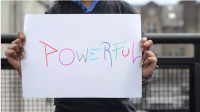IHREC Statement on Human Trafficking and Exploitation of Migrant Workers in the Fishing Industry

The Commission recommends the Government take steps to regularise the status of vulnerable non-EU nationals who have found themselves the subject of labour exploitation in the fishing industry. We welcome Minister Coveney’s statement that he wishes to see such a process put in place.
The Commission also notes a project led by An Garda Síochána to examine potential human trafficking in the maritime sector, involving competent state agencies including relevant marine, immigration and employment rights authorities and civil society organisations.
However, it is critically important that the State take steps to ensure an appropriate system is in place to identify and protect victims of trafficking both during investigations, and in any subsequent criminal proceedings.
The Commission believes that the identification of victims should not solely be the task of An Garda Síochána and that a multi-agency approach should be adopted that includes specialist NGOs.
The approach of the Irish authorities to human trafficking confers a very wide discretion on the Gardaí as the relevant authority identifying possible victims of trafficking.
The Commission believes that the Government should ensure the State’s administrative scheme to identify and protect victims of trafficking is put on a statutory footing to fully comply with its human rights obligations.
The current system has been found to place too heavy a burden of proof on the alleged victim to prove in the first instance that there are reasonable grounds for being identified as a potential victim of trafficking. The Commission has previously outlined its recommendations to Government following a finding of the High Court last April, in which the Commission acted as amicus curiae(friend of the court).
The case concerned the protection of a Vietnamese woman who was the alleged victim of human trafficking and was charged with certain drugs offences having been found by Gardaί locked in a cannabis grow house.
In this case, The Commission highlighted the inadequacy of the State’s administrative scheme for the protection of victims of human trafficking under EU law.
The judgment found that the involvement of the same Gardaí investigating a person under the criminal law, while also dealing with the application of that person for recognition as a victim of trafficking, represents a conflict.
More generally, in relation to such labour exploitation and discrimination, the Commission has the power to grant legal assistance to victims of trafficking in order to vindicate their rights before the Courts.
ENDS
Notes for Editors:
Trafficking in persons or human beings is defined in Article 3(a) of the Protocol to Prevent, Suppress and Punish Trafficking in Persons, Especially Women and Children to the United Nations Convention against Transnational Organized Crime (‘the Palermo Protocol’) as:
“the recruitment, transportation, transfer, harbouring or receipt of persons, by means of the threat or use of force or other forms of coercion, of abduction, of fraud, of deception, of the abuse of power or of a position of vulnerability or of the giving or receiving of payments or benefits to achieve the consent of a person having control over another person, for the purpose of exploitation. Exploitation shall include, at a minimum, the exploitation of the prostitution of others or other forms of sexual exploitation, forced labour or services, slavery or practices similar to slavery, servitude or the removal of organs…”
The Applicant in the High Court case P v the Chief Supt of the Garda National Immigration Bureau (‘the P case’) in April this year was a Vietnamese woman charged with certain drugs offences having been found by Gardaί in a cannabis grow house, where she was locked in from the outside. She claimed that she was a victim of human trafficking and that the failure of the Gardaí to recognise her as a victim of trafficking denied her the opportunity to avail of the protection regime for such victims. The Applicant spent almost three years in detention in the Dóchas Centre, much of that time waiting for a decision on her application to be recognised as a victim of human trafficking.
The Government is preparing a Second National Action Plan on the Prevention and combating of Human Trafficking. The Commission welcomes the fact that the State is reviewing its process, particularly in light of the necessity to do so on foot of the decision of the High Court in the P case.




